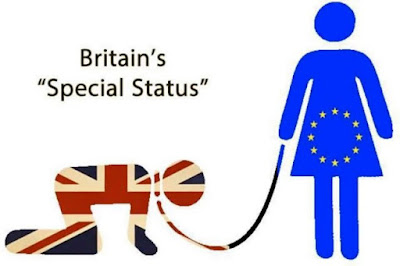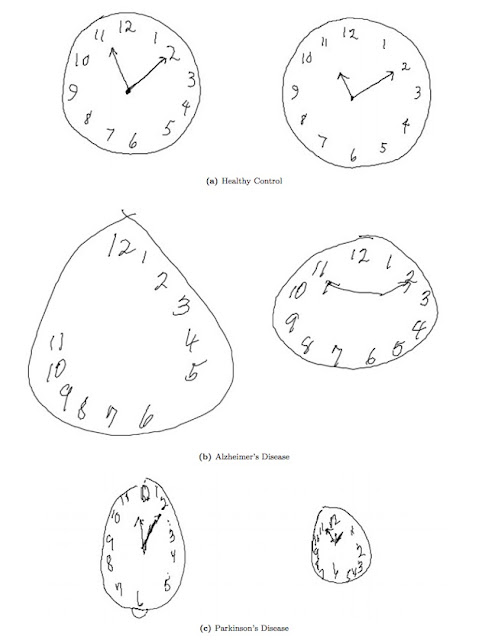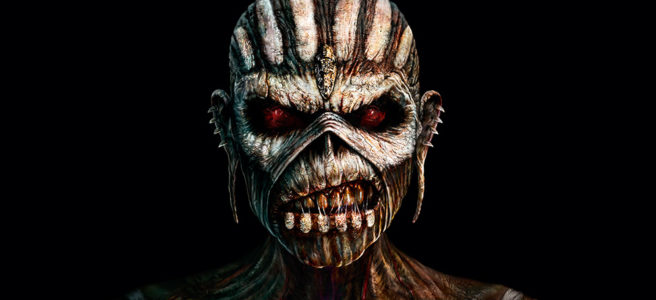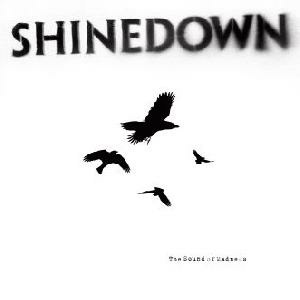There few experiences more baffling in enjoying movies than coming across a movie which is incredibly flawed, but that you love regardless. It’s exactly how I feel about the absolutely brilliant, but fundamentally hamstrung Conquest of the Planet of the Apes, and it seems like a lot of people have been feeling this about Suicide Squad as well. Recently, I rewatched another film which I felt was brilliant but flawed, the 2006 slasher film All the Boys Love Mandy Lane… and dammit, I just cannot stop thinking about it. The film is way deeper than it might appear at first glance, or even more than pretty much any slasher film I can think of for that matter, and yet it feels like the film was totally passed over and in need of a revisiting.
Oh, and be warned – I’m going to attempt to dig deep into this film’s themes, so expect spoilers galore. Got it? Good.
All the Boys Love Mandy Lane revolves around a girl, Mandy Lane, who comes off of summer vacation to find that everyone in the school now seems to agree that she has become smokin’ hot in the past couple months. She is content to stick with her nerdy friend, Emmett, but with her newfound attention, she starts drawing the eyes of the popular guys on campus, including football jock Dylan and his friends, Jake, Bird, Red, and also the admiration of these guys’ girl-friends, Marlin and Chloe. Dylan invites Mandy to a party in hopes of hooking up with her, but Mandy insists that Emmett has to come if she does, much to Dylan’s consternation. True to form, Dylan tries to seduce Mandy unsuccessfully, but then Emmett makes him look like a fool, causing Dylan to punch him in the face. Later, Emmett heads to Dylan’s roof to look down on the partiers, but Dylan comes up and tells him to get down. Emmett then convinces Dylan that he needs to do something to impress Mandy and make her fall for him – like jumping from the roof into his pool. Dylan decides to risk it and jumps, but strikes his head on the edge of the pool and is killed instantly.
9 months later, pretty much everyone in the school hates Emmett, and Mandy has seemingly moved on to the more popular cliques. She receives an invitation to go to a house party at Red’s ranch, which she agrees to attend along with Jake, Bird, Marlin and Chloe. All 3 of the guys brag about how they will be the “first” to hook up with Mandy, while Chloe and Marlin both vie for Jake’s attention. Throughout the party, Mandy is subjected to attempts to seduce her by the guys (particularly Jake and Bird), but she is very tepid about going along with the advances – she clearly isn’t interested, but the guys try regardless. Red’s ranch hand, Garth, shows up around the property at various points to keep things in order, and Mandy clearly finds him instantly intriguing (as does Chloe).
As the night goes on, Chloe and Marlin make a joke about Jake having the smallest penis at the party, which causes him to storm out in a huff towards the barn. Marlin chases after him and proceeds to give him an apologetic blowjob, but when it comes time to reciprocate, Jake just laughs and tells her to piss off. Marlin is furious, but is suddenly attacked and fatally wounded by a hooded assailant. Unaware of this, Jake returns to the house to try to force Mandy to sleep with him, but she rebuffs him aggressively. Frustrated, Jake gives up on Mandy and steal’s the group’s only vehicle and a gun as he drives off in a drunken stupor to find Marlin for another round. When he finds her, he gets drawn into a trap, where he is shot in the head by the hooded assailant.
The partiers hear the shot and assume that it’s Jake acting stupid and drunk, but Garth threatens to put an end to the party. Mandy manages to convince him to hold off until morning at least, until the car drives back to the house and the driver (who the partiers assume is Jake) launches a firecracker at them. Bird chases after the truck and Garth threatens to call Red’s parents, but they decide to just put an end to the party instead. When Bird catches the truck, he finds that the hooded assailant is actually Emmett. The pair fight, but Emmett ends up slashing Bird across the eyes to blind him before stabbing him to death.
The next morning, Emmett sneaks into the house to admire Mandy and leave a blood-stained message. Realizing that something is badly wrong, Garth tries to lead the group out of the ranch, but is shot in the shoulder by Emmett. Red and Chloe make a break for it out the back door of the ranch to get help, but Emmett intercepts them and shoots Red. Chloe runs back to the house to try to get Mandy to help her, but when she runs into her arms, Mandy stabs her to death. We discover that Mandy has been in on this with Emmett all along, and they had planned to kill the popular kids is a testament to their love for one another. However, when Emmett insists that Mandy kill herself and then shoot him in the heart, Mandy decides against this. Emmett becomes infuriated and tries to kill her, but Garth suddenly appears and shoots Emmett, wounding him. Emmett stabs Garth a few times before chasing after Mandy with a machete. The pair fight, but Mandy gets the upper hand and stabs Emmett to death. She then heads back to find Garth and save his life by rushing him to the hospital.
From the plot synopsis, it probably sounds like the film is pretty standard for the genre, but there are a few things which make it stand out. First of all, the film is absolutely gorgeous, with some fantastic cinematography from Darren Genet. That said, the night scenes, which make up the bulk of the film, aren’t nearly as memorable as his unnerving, incredibly harshly lit daytime segments, which run the gamut from an almost-tender shot of hand-holding in the sunset (if not for the rapey connotations of the scene itself) to the almost documentary-style way that the camera tracks Chloe as she runs away, screaming, as Emmett chases after her in his truck. Much of the film reminds me of the harsh, washed-out grittiness of Tobe Hooper’s slasher classic, The Texas Chainsaw Massacre, which almost-certainly was a major visual influence on the film.
The performances in the film are also fairly solid. No one really stood out to me as being poor, although the only one who stood out to me as particularly noteworthy was Whitney Able as Chloe. It might be because that character had the best material to work with, but she goes from “typical mean-girl cheerleader stereotype” to a truly pitiable and tragic person that I genuinely felt sorry for… unlike basically every other character in this not named “Mandy”. I also thought that Luke Grimes played a really contemptible asshole with Jake, putting in enough smugness that he’s kind of entertaining to watch rather than being unbearable (you should have been taking notes, all you irritating sacks of shit from Project X). I’d like to say that Amber Heard did great as Mandy, but I’m a little indifferent on her performance. To be totally fair though, she’s playing a character who spends the vast majority of the film in a (seemingly) passive role, so she isn’t able to really assert herself until the end (where she does a good job). If nothing else though, she definitely has the looks to sell the idea that these guys are all going crazy over her.
My main beef with All the Boys Love Mandy Lane though comes down to the script side of things. If you go into this expecting a slasher film, then you’re probably going to find that it’s fairly boring – very little seems to happen during its middle segment, and you literally get 60+ minutes into the film with more than half of the total body count occurring before any of the characters even realize that there might be a killer on the loose. For my first viewing, I was just sitting there watching the movie slowly go by with characters just getting killed off occasionally, seemingly without much consequence in the film itself, which was making me wonder what the whole point was.
However, the film is much more interesting on that second viewing, where you already know what you’re going in for and have your context recoloured. I didn’t miss the film’s clear commentary on aggressive hypersexuality the first time (it’s incredibly in-your-face about it), but when you go into the film realizing that it’s the entire point of the film (rather than being a generic slasher), it makes the film so much more coherent. My understanding of gender relations has also improved considerably since I first watched this film, which helped colour my perception quite a bit. When I first saw this movie, I was probably leaning more on the idea that this was a “Beta Uprising” slasher film and kind of empathized a little bit with Emmett. I had realized there were feminist themes to Mandy Lane in my initial viewing, but after my second viewing it seems pretty clear to me that the film is just saturated in them.
Of course, most reviewers picked up on the feminist themes in the film, but some didn’t think that the film’s approach was successful. Bitch Flicks’ review of Mandy Lane claims that the film stops short of being feminist because they felt that the film was declaring Chloe and Marlin were traditional slasher “whores” who were deserving of their deaths, and claimed that the film would have been better if they had only killed off the men as a message about the harmfulness of toxic masculinity*. However, I believe that this analysis was unfortunately shallow and off-center since they seem to think that Mandy is supposed to be the film’s innocent feminist icon. In particular, I’m not so sure that the film is condoning Marlin or Chloe’s death for being sexually active like they claim – after all, Chloe’s death in particular was incredibly sad and didn’t occur to me as being “comeuppance” like “whore deaths” so often do in slasher films.
From the moment that the film begins, Mandy is absolutely immersed in a culture of in-your-face hypersexuality and superficial relations. There’s a clear element of sexual entitlement amongst most of the male characters, as nearly all of them seem to believe that they are going to be sleeping with Mandy at some point. Even the least-aggressively entitled character, Red, seems to think that he is going to get with her at some point, despite not actually doing anything to see this hope through. In my opinion, the superficial relationships on display throughout the film are one of the first keys to understanding the narrative. If you pay attention you’ll find that, for all of their big talk about hooking up with Mandy, none of “the boys” actually bother trying to get to know her. Most of the time, their interactions with Mandy seem to come down to gazing at her lustfully, telling one of the other guys that “they’re gonna hit that” and then trying to woo her with transparently-empty attempts at charm. Chloe and Marlin aren’t much better – despite supposedly being best friends, the two girls constantly tear each other down, such as Chloe’s repeated insistence that Marlin is fat (she isn’t) or Marlin insulting Chloe for having pubic hair (which she insults as being “Sherwood Forest” down there). Both girls are completely complicit in the boys’ objectification of them. In particular, Chloe’s relationships also clearly revolve around the superficial – she spends the entire party trying to get with Jake, and when he ignores her she tries to seduce Garth in turn, unsuccessfully. In one of the film’s more tragic scenes, she also laments to Mandy in private that Mandy is so much prettier than her. Her melancholy tone conveys utter defeat, but the fact that this is the first thing she really says to attempt to connect with Mandy suggests that prettiness is the only thing that she really understands. Honestly, I think that this exchange might have been the moment which sealed her fate at the film’s end.
However, the film gives us a clear counter-point to the superficial relationships in the film in the form of Garth (pay attention, this is going to become a trend). Garth is the one character who actually makes an effort to get to know Mandy, and without the ulterior motive of trying to fool her into sleeping with him for that matter. In fact, during one of their bonding moments, he ends up feeling like he can’t be with Mandy because she is “about 10 years” too young for him. This conveys that he respects her and finds her very interesting, but doesn’t want to force a relationship with someone so much younger than him, while also standing in stark contrast to the other guys, who only really talk with Mandy if they think it’ll get them closer to sleeping with her. It’s also worth noting that Garth demonstrates his responsibility and seriousness throughout the film – on a number of occasions he decides not to party with the teens because he has work to do around the ranch, or he wants to keep them safe. Contrast this to Bird, who only volunteers to walk to the ranch because he thinks he will get to hook up with Mandy on the way there, or who gets pissed off when he needs to restart the generator because he thinks he’ll miss another opportunity. Mandy, for her part, clearly finds Garth very intriguing, but unlike Chloe, she wants to get to know him and not just use him as a one night stand.
The second major key to understanding the film is the idea of sexual competition. This is made very obvious near the beginning of the film when Emmett chases after Mandy wearing a shirt which has “natural selection” written across the front of it, which is intended to convey the old “survival of the fittest”/Social Darwinian philosophy shared by assholes everywhere. Going along with the superficial relationships, the film is absolutely awash in hypersexual competition amongst the characters. Pretty much every sexual reference which is clearly framed in a negative light is linked to some form of attempt to tear down or compete with others. Just as a short list of examples, we have Chloe insisting Marlin is fat, Marlin’s comments about Chloe’s “Sherwood Forest”, Jake bragging about having hooked up to girls from 42 of the 50 States, Bird volunteering to walk back to the ranch so he can get rather rape-y with Mandy, Jake refusing to reciprocate to Marlin after she gives him a blowjob, etc. One particular instance that deserves further elaboration though is when Jake’s rather extreme reaction when Chloe and Marlin agree that he has the smallest dick in the room. Jake is such a toxically-masculine character who has been constantly attempting to one-up everyone, that this rather public declaration of him having the smallest manhood is nothing short of a devastating blow to his ego (especially since he’s trying to get with Mandy at the time). This explains why he gets so worked up about something so trivial, because as far as he is concerned, he’s the top of the pile, the alpha male if you will. Chloe also comes to fit into a similar mold as the film progresses. She brushes off the “Sherwood Forest” comment at the time, but later in the film, she is seen breaking down and crying as she attempts to trim her pubic hair in order to up her perceived value. At one point, we also see that she wears a padded bra in order to make it appear that her breasts are bigger than they actually are – a superficial and somewhat short-sighted move in many respects, but one which allows her to compete more “effectively”.
It’s also pretty clear that all the obsession about Mandy is just an extension of this hypersexual competition. Everyone wants to get with the “pure virgin”, Mandy Lane because she is unconquered, and whoever gets to her first will have their status instantly boosted as a result. In contrast, Marlin and Chloe are both sexually active, so hooking up with them isn’t considered particularly desirable. This is most clearly demonstrated when Jake finally gives up on Mandy and decides to just go have sex with Marlin again, claiming that he’s going to go “back to the well”. There’s a sense that if any of the guys do get with Mandy, then that will be the end of it – they may obsess over her now, but that’s only because she is “pure”. If she started indulging the boys’ desires, then their interest in her will wane considerably until her “sexual currency” is worthless. The toxic masculinity of this mindset is extremely clear and should be distressingly familiar to anyone who anyone who pays much attention to the manosphere (particularly pick-up artists): the idea that real men should be having lots of sexual partners, but women who have had lots of sexual partners are dirty, worthless whores with shrivelled vaginas. The hypocrisy of this mindset is staggering, but in Mandy Lane, Marlin and Chloe are complicit in it – it’s not a coincidence that both girls are lusting after Jake, the biggest misogynist in the entire group. It’s also worth noting that this competition for Mandy’s attention ends up coming down to grand gestures (eg, Dylan jumping from the roof into the pool, as if that would make Mandy instantly drop her panties for him) or really transparent lies that they think will impress her (eg, Bird claiming that he “respects the woman” and then forcing Mandy to hold his hand and give him a not-so-innocent kiss on the cheek… as if his words speak louder than his actions). Who does end up impressing Mandy, you may wonder? Garth, who just… is. He doesn’t do any grand gestures or lie to try to impress her, he just is himself and does the right thing when it is needed. He out-battles the competition without even having to consciously compete.
The third key to understanding the film is in Emmett’s role… which, compared to the other two keys, the film doesn’t shed quite so many answers on, and so interpretation is going to be relied on a bit more. Based on the previous two keys though, it would seem to me that Emmett is representative of a different, more primal sort of “competition” than the other boys are involved in. I believe that this is the entire point of the film’s opening 10 minutes, which focuses almost entirely on interaction between Dylan and Emmett. In this opening, Dylan attempts to woo Mandy through sweet words, charms and his physique. Emmett very clearly realizes that he can’t compete with Dylan in this arena, as demonstrated by the scene of him standing in front of the mirror without a shirt… which he then puts back on in defeat before sitting alone at the pool during the party. However, when he heads up to the roof, Emmett figures out that he can compete using his brain and convinces Dylan to effectively commit suicide. In Emmett’s (clearly sociopathic) mind, he may think “sure, Dylan might have been a more charming fellow and have a nicer body, but what good does that do him if he’s dead and I’m not?” Emmett may hate the superficial nature of the popular kids in the film, but many ways, he’s not much different than they are.
Emmett’s ruthlessness can ultimately be boiled down to just more gestures and competition – on a far more vicious scale, but gestures and competition none-the-less. He believes that Mandy is impressed by his viciousness (and, to some degree, she kind of is), so he attempts to escalate it show just how devoted he really is. His obsession pushes him too far though, as the gestures and the ideas become the real thing he’s in love with. For example, I believe that Emmett is basically holding Mandy up like a goddess of purity. When he kills Marlin, just after she gives Jake a blowjob, he is particularly vicious. He forces her to fellate the barrel of a rifle before breaking her neck, a level of sadistic “comeuppance” which he doesn’t reserve for any of the other characters. While Bitch Flicks might argue that this is just a misogynist moment of “slasher-flick whore punishment”, I’m not entirely convinced that that is the intention – rather, I think it is intended to signify Emmett’s own sense of twisted misogyny which has developed from his obsession over a single, idealized woman. It is certainly within reason to believe that he views Marlin as a worthless slut who gratifies other men, unlike his perfect angel, Mandy, hence why he forces Marlin to fellate the gun barrel (an image which effectively symbolizes “sex = death”).
The crux of Emmett’s big display at the film’s end is that he and Mandy have a suicide pact, which he believes will show his ultimate devotion to her to the entire world. In fact, he believes that this display will be so effective that it will inspire “copycat killings”, like they’re the Romeo & Juliet of mass murderers. However, what would this gesture actually do for Mandy? The only person who “benefits” from this suicide pact is Emmett, because it will show the entire world just how much he loved Mandy Lane, while preserving her role in the plot so that everyone will still believe her to be the pure, virginal woman (in fact, if she’s dead, then she’s eternally untarnished). In a sense, the mass murder and then suicide pact would (in Emmett’s mind) set him up as the ultimate conqueror – the man who overcame all the other men he was competing with in a permanent sense and then won Mandy’s heart forever. Does he really “love” Mandy though, or is he in love with this idealized notion of her? The fact that he goes berserk when Mandy rejects the suicide pact suggests to me that he’s in love with his idealized angel and his own grand gesture, rather than Mandy as an actual person with her own beliefs and wishes. Ultimately, Emmett reveals that he’s no better than Jake or Bird – forcing his will on Mandy and believing that he is entitled to her, but unable to comprehend that maybe she isn’t interested (the fact that she rejects his suicide offer by saying “you should never do anything for me” just hammers this home harder).
As screwed up as that mindset is, I’ve been to the sorts of places that Emmett’s mind has gone in this film, and so I find his logic disturbingly understandable (y’know, minus the murder). In high school, I was obsessed with this one “pure” Christian girl who I missed my very brief chance of dating before she moved on. However, I couldn’t get over her and ended up shielding her from other guys in the school who I thought we assholes, much in the same manner. In fact, at one point I was sorely tempted to push one asshole down the stairs who wouldn’t stop creeping on her, and at the time I decided against it… because she’d probably sympathize with him and not me. Now I probably would have been too level-headed to actually go ahead with it, but that was the sort of obsessively-screwed up I was in high school. I was also so obsessed with her purity aspect that I was very consciously shutting out any sort of sexual thoughts or feelings in regards to her, and would get pretty furious if other people spoke about her in a sexual way. In fact, it was unhealthy enough that I wondered what the hell I would do if we ever did actually end up dating and get together, I’d probably not be able to cognitively handle it. So… yeah. You can probably understand why I saw a lot of Emmett in myself when I first watched this film.
The final key to understanding the film is Mandy herself, or rather, understanding her motivations. We’re never really given an entirely clear understanding of why she turns on her supposed “friends”, to what extent she was involved in their murders, or exactly why she turns on Emmett at the end (although, as I stated above, it’s likely that she had come to realize that he was no better than the other boys). As I wrote earlier, I think Bitch Flicks makes a mistake in holding up Mandy as a straight feminist symbol in the film. While there are certainly feminist ideals attached to her, her sociopathy makes it a little difficult to view her as a simple, Nathaniel Hawthorne-style walking symbol. It’s pretty clear that she’s not just railing against the patriarchy throughout the film, but that’s hardly enough to make the film “not feminist”. Rather, to me she seems to be more of an independent character through which feminist themes are explored.
In an initial viewing of the film, it feels like Mandy is a passive figure for most of the action. She spends most of the film being gazed at while other characters attempt to get with her, or is off somewhere else while those characters get brutally killed. However, on a second viewing, it becomes much more clear that she is in control nearly the entire time. Scenes where she appeared passive as she watches the other characters bragging about sexual conquests or belittling one another gain a sinister subtext as we realize that Mandy is not just witnessing – she’s cataloguing their sins. She’s an interesting sort of slasher anti-hero – instead of hunting down and killing the characters, she influences other people to eliminate the characters for her. This also is where I disagree with Bitch Flicks’ assessment that we’re supposed to hold her up as a pure feminist example, because as the film goes on, it’s pretty clear that we’re not supposed to be condoning the deaths of the characters. Chloe and Red in particular begin to grow close during the increasing stress of the night and are set up in a manner which makes it seem like both of them are blossoming into a real relationship which could help them both (particularly Chloe with her tortured self-loathing and feelings of inadequacy). However, when they are both dispatched, it is a truly tragic and heart-wrenching moment which we pretty clearly are meant to not feel good about. I’d rather see these characters become good people than lose their lives as punishment for their mistakes, but Emmett and Mandy see things otherwise.
Where does Mandy’s murderous motivation come from though? This is a puzzle that I had to mull over for quite a while because the movie doesn’t give us a straight answer. However, I think I might have come up with a convincing answer: the one big common feature which unites Mandy and Garth is the fact that both of them have lost someone incredibly close to them (in Mandy’s case, her parents; in Garth’s, his wife). If you’ve ever lost someone close, or listen to the Dead Things podcast, you’ll know that it’s a life-altering event which changes your entire outlook on the world. Now picture this – Mandy is surrounded by this superficial, belittling hypersexuality, which she has come to realize is meaningless next to the grand scope of mortality. Then, after the summer break, she comes back to school and suddenly finds herself immersed in the fickleness of this superficial attention, which causes her to resent it even more. She’s almost like the Jigsaw killer, lashing out at people for not appreciating their lives, and the lives of other people who they just use and abuse. This idea is also demonstrated when Mandy kills Emmett, declaring that she wants to finish high school instead of dying for him, suggesting to me that Emmett isn’t even really all that cognisant of the finality of his own actions.
There is also a seemingly inconsequential scene in this film which I think really hammers home this link between Mandy, Garth and death. During one conversation, Garth reveals that he had to kill off the entire herd of cattle at Red’s farm because they came down with an illness, to which the partiers are incredulously surprised that he had the stomach to eliminate the entire herd by himself. As Garth explains, it was his responsibility and it had to be done. The fact that Mandy and Emmett have their final confrontation in the mass grave that these cows were buried pretty-explicitly draws a link between the characters and this idea of eliminating the diseased for the greater good. For Emmett, eliminating the other characters improves his standing and acts as a gesture of his devotion to her. For Mandy, it would seem that she shares Garth’s view – she views the superficial, the toxically masculine, the competitors, as the diseased which must be eliminated for the good of the “herd”, and values honesty and the responsibility to step up and do what is necessary – hence why she turns on Emmett. This also helps to explain why she likes Garth so much, because she sees a connection in this philosophies… although Garth may not see them as quite so similar if he understood Mandy’s true nature.
And that’s All the Boys Love Mandy Lane. I do hope that I helped shed some light on why I love this film so much, in spite of its rather slow plotting in the middle. I understand the reasoning behind it, but I can’t help but be kind of deflated by the way that the film kind of drags and feels inconsequential at times. If you look into the film beyond the surface level though, All the Boys Love Mandy Lane is a real treat full of interesting themes and ideas – I mean, after all, isn’t looking beyond the skin what Mandy would want you to do anyway? Something to consider.
7/10
*For one thing, this could easily be construed as misandrist, which is something that the feminist community doesn’t need to be getting legitimately thrown our way. Furthermore, I believe that the existing message in the film is more nuanced than that heavy-handed sort of conclusion would have been anyway.


























































